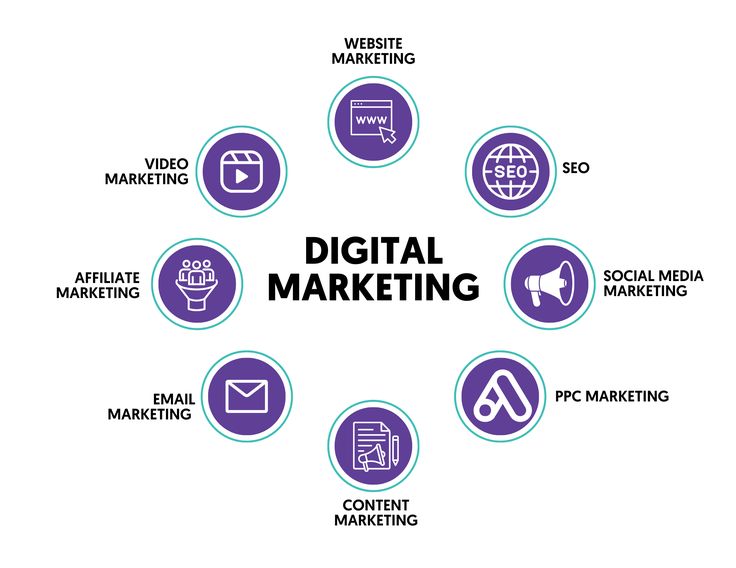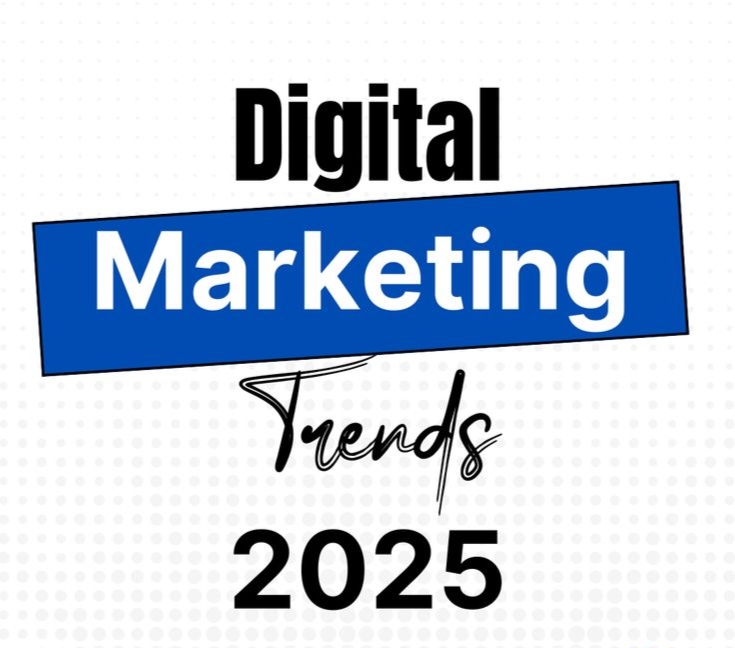The Ultimate Guide to Digital Marketing In 2025
Introduction
Digital marketing is evolving rapidly, and businesses must adapt to stay ahead in the competitive landscape. The rise of artificial intelligence (AI), automation, and personalized marketing strategies has transformed the way brands interact with their audiences. In this comprehensive guide, we will explore the latest trends, strategies, and tools that will shape digital marketing in 2025.

Understanding Digital Marketing
Digital marketing encompasses the all online strategies used to promote brands, products, and services. Unlike traditional marketing, which relies on print and television ads, digital marketing leverages the internet and digital channels, such as search engines, social media, email, and paid advertisements, to reach and engage audiences.
Key Components of Digital Marketing
- Search Engine Optimization: Enhancing website visibility on search engines like google.
- Content Marketing: Creating valuable and informative content for attract and retain customers.
- Social Media Marketing: Leveraging platforms like Facebook, Instagram, and LinkedIn for brand awareness.
- Email Marketing: Sending personalized email to engage and nurture leads.
- Pay-Per-Click Advertising: Running paid ads on search engines and social media.
- Affiliate Marketing: Partnering with influencers and other businesses to drive sales.
- AI and Automation: Using technology to enhance customer experience and streamline marketing efforts.

Emerging Trends in Digital Marketing 2025
1. AI-Powered Marketing
AI has revolutionized digital marketing by providing personalized customer experiences. AI-driven chatbots, predictive analytics, and automated content generation allow businesses to scale their marketing efforts efficiently.
2. Voice Search Optimization
With the rise of smart assistants like Alexa, Siri, and Google Assistant, optimizing for voice search is crucial. Businesses must focus on conversational keywords and local SEO to rank higher in voice search results.
3. Video Marketing and Short-Form Content
Platforms like Tik Tok, Instagram Reels, and YouTube Shorts have popularized short-form videos. Brands must create engaging, informative, and entertaining video content to capture audience attention.
4. Hyper-Personalization
Consumers expect highly personalized content. AI and data analytics enable businesses to deliver targeted content, emails, and product recommendations based on user behavior and preferences.
5. Interactive Content and Augmented Reality (AR)
Interactive quizzes, polls, and AR experiences provide immersive brand interactions. Retailers, for example, can use AR to let customers virtually try on products before purchasing.

Measuring Digital Marketing Success
To evaluate marketing effectiveness, businesses must track key performance indicators (KPIs), such as:
- Website Traffic: Number of visitors and page views.
- Conversion Rates: Percentage of visitors taking desired actions (e.g., purchasing a product).
- Engagement Metrics: Likes, shares, comments, and click-through rates (CTR).
- Return on Investment (ROI): Profit generated from marketing campaigns.
Using tools like Google Analytics, SEMrush, and HubSpot can provide valuable insights to optimize marketing strategies.
